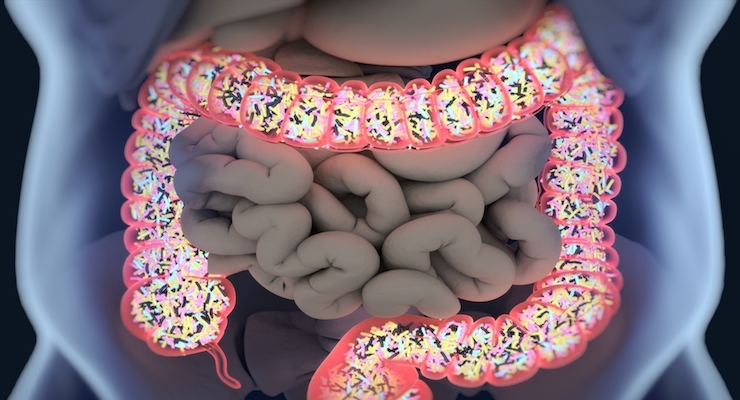Market Updates, Research
Researchers Call For Further Investigation Into Nutrition and Gut Microbiome
Little has been done to comprehend the nature of interactions between the gut microbiome and nutrition, or how that relationship influences disease.

By: Mike Montemarano

In a literature review conducted by scientists at George Washington University and the National Institute of Standards and Technology, published in Nutrition Reviews, the team of researchers reaffirmed the need to further investigate the profound effects that nutrition has on the gut microbiome.
The review’s authors consider the human microbiome to be an understudied target for novel strategies to diagnose or treat disease, given how much certain diseases may involve disruptions to the gut microbiome, and how the discoveries of these correlations continue to increase while the scientific community at large hasn’t reached a consensus on what a “healthy” gut microbiome looks like.
The review was aimed at providing a full assessment of the current understanding of the interactions between nutrition and the gut microbiome in healthy adults.
“As we learn more about the gut microbiome and nutrition, we are learning how influential they are to each other and, perhaps more central to public health, the role they both play in prevention and treatment of disease,” Leigh A. Frame, PhD, MHS, of the GW School of Medicine and Health Sciences said.
There is a reciprocity between nutrition and the gut microbiome, made clear by research which determines how microbiota produce both macro and micronutrients. The authors found that research has mostly focused on dietary fiber, which serves as fuel for gut microbiota. They also highlighted that protein promotes microbial protein metabolism and potentially harmful byproducts that may sit in the gut, increasing the risk of negative health outcomes.
“This review reveals that the measurement tools currently in our arsenal are ineffective for identifying the microbial and molecular signatures that can serve as robust indicators of health and disease,” Scott Jackson of NIST said.
The authors suggest that future research must consider individual responses to diet and how the gut microbiome responds to dietary interventions, as well as emphasized function of the microbiome (what it does) over merely composition (what is there).
The article is available through the Oxford University Press.




















